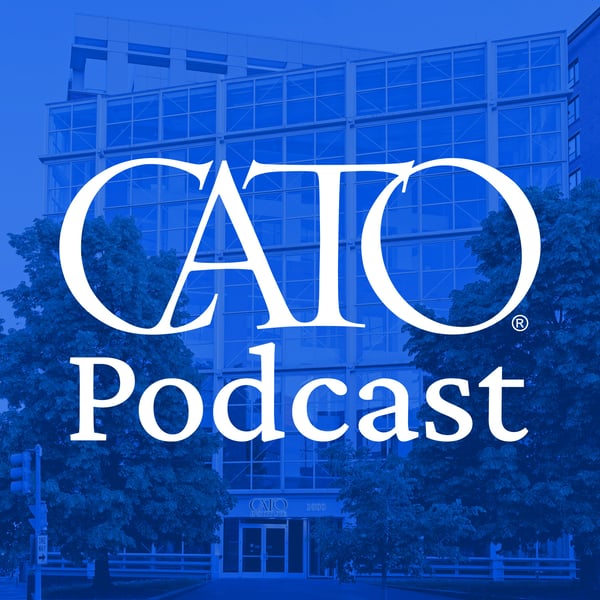The Illusion of Financial Privacy
Cato Podcast
Cato Institute
4.6 • 949 Ratings
🗓️ 3 July 2025
⏱️ 26 minutes
🧾️ Download transcript
Summary
In this eye-opening episode, Cato Institute’s Norbert Michel and Nicholas Anthony explore how the 1970 Bank Secrecy Act has evolved from a tool to catch tax cheats into a sprawling financial surveillance system that erodes Fourth Amendment protections. They discuss the law’s expansion post-9/11 and emerging reform efforts that could restore financial privacy.
Show Notes:
Norbert Michel and Jennifer J. Schulp, "Revising the Bank Secrecy Act to Protect Privacy and Deter Criminals" Policy Analysis No. 932, July 26, 2022
Nicholas Anthony, "The Right to Financial Privacy" Policy Analysis No. 945, May 2, 2023
Norbert Michel, "The Bank Secrecy Act Is a Bigger Threat than FISA" Forbes, April 17, 2024
Nicholas Anthony and Naomi Brockwell, "The Illusion of Financial Privacy" Reason.com, May 30, 2024
Hosted on Acast. See acast.com/privacy for more information.
Transcript
Click on a timestamp to play from that location
| 0:00.0 | Hello and welcome. My name is Nick Anthony. I'm a policy analyst with the Cato Institute's Center for Monetary and Financial Alternative. |
| 0:12.2 | Hi, I'm Norbert Michelle. I'm the director for the Center for Monetary and Financial Alternatives here at Cato. |
| 0:18.4 | And today we're here to really dig into financial privacy. |
| 0:22.6 | What is it? Why is it on our plate? Why are we working on it? And what needs to change? |
| 0:29.9 | And I think the best place to start is really with the Bank Secrecy Act, this core landmark piece of legislation, 1970, that got this ball rolling. |
| 0:42.9 | Norbert, do you want to kind of give a brief overview of what that is? |
| 0:46.8 | So the Bank Secrecy Act was started, really started being formulated in the late 60s. And we ended up with something that really |
| 0:56.0 | didn't look anything like what the original promise was supposed to be. Banks didn't really |
| 1:03.4 | have anything to do with the legislation. This was just kind of foisted upon them. And it ended |
| 1:09.7 | up with some major restrictions on what banks could do and as a |
| 1:14.0 | result on what bank customers could do. And you can kind of think of it as implementing two |
| 1:20.4 | big things. One thing was a record keeping requirement. And it was a record-keeping requirement on financial institutions, |
| 1:29.8 | not just banks, and there's about maybe like 20 different types of companies that fall under |
| 1:35.7 | financial institutions. So it covers jewelers, car dealers, broker-dealers, as well as banks. So it's not |
| 1:43.7 | just banks. And it required them to keep a lot of |
| 1:48.2 | customer records on the transactions that those customers made. Now, when you're saying |
| 1:52.6 | keep customer records, that's right. It's called the Bank Secrecy Act. So you mean |
| 1:57.3 | keep those records secret, keep them safe and stored. |
| 2:01.2 | If only that's what I meant. |
| 2:02.6 | Yes. |
| 2:03.5 | No. |
| 2:04.4 | And that's part of the problem, as we'll get to, I think, in a minute. |
... |
Please login to see the full transcript.
Disclaimer: The podcast and artwork embedded on this page are from Cato Institute, and are the property of its owner and not affiliated with or endorsed by Tapesearch.
Generated transcripts are the property of Cato Institute and are distributed freely under the Fair Use doctrine. Transcripts generated by Tapesearch are not guaranteed to be accurate.
Copyright © Tapesearch 2025.

